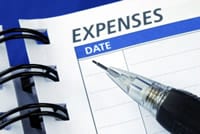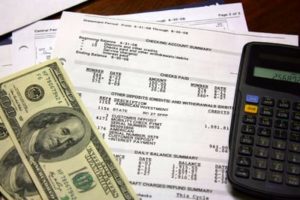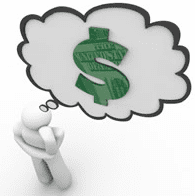
The age-old question of payoff debt versus an emergency fund – which is more important?
If you have debt, then you know that the interest you are paying is a drain on your finances. You are correct, that interest is a waste of your hard-earned money. You know that you need an emergency fund and you have been meaning to start one, but you just don’t have the money.
Which should you tackle first? Let’s assume you have $500 in your budget to work with and we will look at a couple of scenarios.
#1 – You have debt totaling $10,000 and you are paying the minimum payment of $250 per month at an interest rate of 20%. It will take you 67 months (5+ years) and you will have paid back $16,750 ($6,750 in interest). That’s assuming you don’t take on more debt.
Then you put the remaining $250 to start your emergency fund.
#2 – You increase your payment on your debt to $500 per month. It will take you 25 months (just over 2 years) and you will have paid back $12,500.
You will not be starting your emergency fund until after the debt is paid. What would you do if an emergency expense happened? How would you pay for it?
As you can see, the answer is somewhere in the middle and you can think outside the box for faster results. You could look into reducing the interest rate on your debt – refinancing, balance transfer for a lower interest rate etc. The quicker you payoff the balance, the less you will pay in interest.
You need an emergency fund to be prepared for whatever happens in life. You will want to start to save something on a regular basis each and every month, even if you have debt.
Save


 Welcome to 2017. My goal for you is to keep you informed and assist you with your personal finances. Remember, that no one cares (or should care) about your finances as much as you should. This may be shocking to some, but it shouldn’t be. You have your best interests at heart.
Welcome to 2017. My goal for you is to keep you informed and assist you with your personal finances. Remember, that no one cares (or should care) about your finances as much as you should. This may be shocking to some, but it shouldn’t be. You have your best interests at heart.


 This summer we have spent time cleaning out – lots was tossed and donated. We even had a tag sale! We also went through our bills and eliminated, reduced and replaced. Here is some of what we did.
This summer we have spent time cleaning out – lots was tossed and donated. We even had a tag sale! We also went through our bills and eliminated, reduced and replaced. Here is some of what we did.